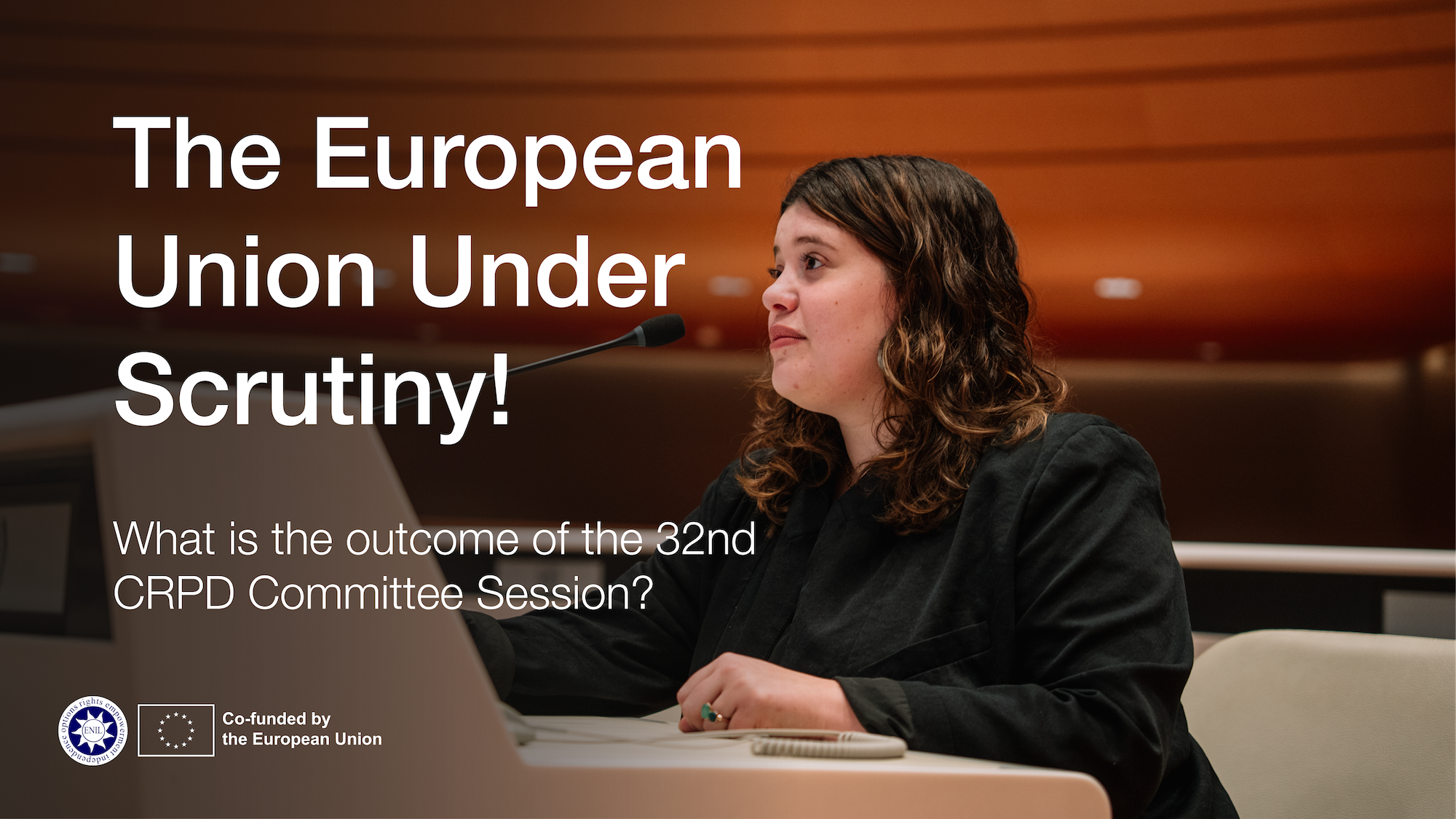The European Union is the biggest development and humanitarian aid donor in the world. It is also the only regional organisation to have ratified the UN Convention on the Rights of Persons with Disabilities (CRPD). As such, it is in a perfect position to address the ongoing social exclusion and segregation of children, adults and older persons with disabilities in long-stay residential institutions around the globe. But, is this really the case? Is the European Union supporting the closure of institutions, or does its funding contribute to continued segregation of disabled people?
These are the questions addressed in the new report, written by the European Network on Independent Living – ENIL, and commissioned by the European Disability Forum in July 2021. The aim of the report is to improve the understanding of the EU institutions, other funders, development organisations, disabled people and their representative organisations, service providers and the general public on the role of the EU in supporting deinstitutionalisation of disabled people globally.
Research for the report was carried out between July and November 2021, through a mix of desk research, interviews and focus groups. On top of that, several requests for information were submitted to the European Commission. Although information was limited and difficult to access, the report highlights seven main problems related to the use of EU funding outside its borders:
- There are very few projects on deinstitutionalisation funded by the EU.
- Deinstitutionalisation is often understood as a process which involves moving disabled people from large into small institutions.
- There are a lack of clear criteria for the selection of projects, which would ensure compliance with the CRPD and other relevant laws and policies on the rights of disabled people.
- Contracts are often awarded to beneficiaries with the lack of expertise on deinstitutionalisation.
- The newly-developed services, funded by the EU, are often not sustainable once the funding stops.
- It is very difficult to access comprehensive information about what is being funded.
- There is a lack of involvement of DPOs in the programming, implementation and monitoring of EU funds.
ENIL and EDF are calling for change in how EU funding is used, and for more support to the closure of institutions around the world and the development of community-based supports and services which facilitate independent living and being included in the community. The report includes a number of recommendations on how this could be achieved.
The launch of the report was planned for 1 March, but is being postponed until April (date TBC) due to the war in Ukraine and the resulting humanitarian crisis. We stand in solidarity with disabled people of Ukraine, including the tens of thousands of children and adults detained in institutions. Their safety, protection and human rights must be high on the agenda of the EU’s and the Member States’ response.
Download the report in English and Easy to Read version.



